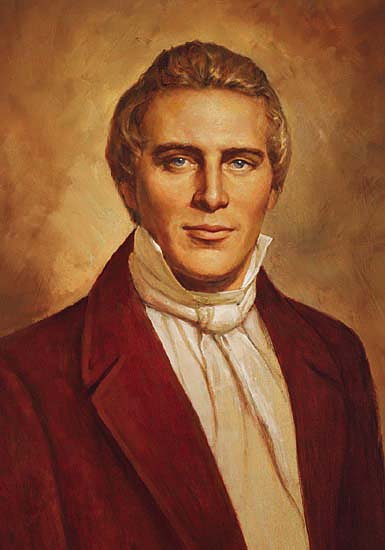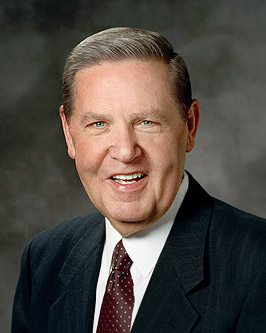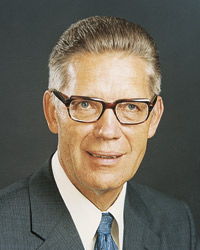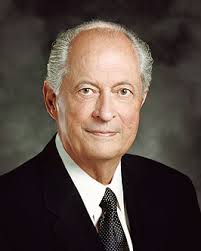Godhead
SEARCH BY TITLE
 The Christian Godhead – Plurality of Gods
The Christian Godhead – Plurality of Gods
Many men say there is one God; the Father, the Son and the Holy Ghost are only one God! I say that is a strange God anyhow—three in one, and one in three! It is a curious organization. “Father, I pray not for the world, but I pray for them which thou hast given me.” “Holy Father, keep through Thine own name those whom thou hast given me, that they may be one as we are.” All are to be crammed into one God, according to sectarianism. It would make the biggest God in all the world. He would be a wonderfully big God—he would be a giant or a monster. I want to read the text to you myself—”I am agreed with the Father and the Father is agreed with me, and we are agreed as one.” The Greek shows that it should be agreed. “Father, I pray for them which Thou hast given me out of the world, and not for those alone, but for them also which shall believe on me through their word, that they all may be agreed, as Thou, Father, art with me, and I with Thee, that they also may be agreed with us,” and all come to dwell in unity, and in all the glory and everlasting burnings of the Gods; and then we shall see as we are seen, and be as our God and He as His Father. I want to reason a little on this subject. I learned it by translating the papyrus which is now in my house. I learned a testimony concerning Abraham, and he reasoned concerning the God of heaven. “In order to do that,” said he, “suppose we have two facts: that supposes another fact may exist—two men on the earth, one wiser than the other, would logically show that another who is wiser than the wisest may exist. Intelligences exist one above another, so that there is no end to them.” If Abraham reasoned thus—If Jesus Christ was the Son of God, and John discovered that God the Father of Jesus Christ had a Father, you may suppose that He had a Father also. Where was there ever a son without a father? And where was there ever a father without first being a son? Whenever did a tree or anything spring into existence without a progenitor? And everything comes in this way. Paul says that which is earthly is in the likeness of’ that which is heavenly, Hence if Jesus had a Father, can we not believe that He had a Father also? I despise the idea of being scared to death at such a doctrine, for the Bible is full of it. I want you to pay particular attention to what I am saying. Jesus said that the Father wrought precisely in the same way as His Father had done before Him. As the Father had done before. He laid down His life, and took it up the same as His Father had done before. He did as He was sent, to lay down His life and take it up again; and then was committed unto Him the keys, &c. I know it is good reasoning.
 The Only True God and Jesus Christ Whom He Has Sent
The Only True God and Jesus Christ Whom He Has Sent
We declare it is self-evident from the scriptures that the Father, the Son, and the Holy Ghost are separate persons, three divine beings, noting such unequivocal illustrations as the Savior’s great Intercessory Prayer just mentioned, His baptism at the hands of John, the experience on the Mount of Transfiguration, and the martyrdom of Stephen—to name just four. With these New Testament sources and more ringing in our ears, it may be redundant to ask what Jesus meant when He said, “The Son can do nothing of himself, but what he seeth the Father do.” On another occasion He said, “I came down from heaven, not to do mine own will, but the will of him that sent me.” Of His antagonists He said, “[They have] … seen and hated both me and my Father.” And there is, of course, that always deferential subordination to His Father that had Jesus say, “Why callest thou me good? there is none good but one, that is, God.” My father is greater than I.” To whom was Jesus pleading so fervently all those years, including in such anguished cries as “O my Father, if it be possible, let this cup pass from me” and “My God, my God, why hast thou forsaken me”? To acknowledge the scriptural evidence that otherwise perfectly united members of the Godhead are nevertheless separate and distinct beings is not to be guilty of polytheism; it is, rather, part of the great revelation Jesus came to deliver concerning the nature of divine beings. Perhaps the Apostle Paul said it best: “Christ Jesus … being in the form of God, thought it not robbery to be equal with God.”
 Our Relationship With The Lord
Our Relationship With The Lord
Truly the most grievous and evil heresy ever imposed on an erring and wayward Christianity is their creedal concept about God and the Godhead! But none of this troubles us very much. God has revealed himself to us in this day even as he did to the prophets of old. We know thereby that he is a personal Being in whose image man was made. We know that he has a body of flesh and bones as tangible as man’s; that he is a resurrected, glorified, and perfected Being; and that he lives in the family unit. We know that we are his spirit children; that he endowed us with the divine gift of agency; and that he ordained the laws whereby we might advance and progress and become like him. We know that God is the only supreme and independent Being in whom all fullness and perfection dwell and that he is omnipotent, omniscient, and, by the power of his Spirit, omnipresent. We know “the Almighty God gave his Only Begotten Son” (D&C 20:21), as the scriptures attest, to ransom man from the temporal and spiritual death brought into the world by the fall of Adam and to put into operation all of the terms and conditions of the Father’s plan. We know that the Holy Ghost, as a “personage of Spirit,” is both a Revelator and a Sanctifier and that his chief mission is to bear record of the Father and the Son. Thus there are, in the Eternal Godhead, three persons—God the first, the Creator; God the second, the Redeemer; and God the third, the Testator. These three are one—one God if you will—in purposes, in powers, and in perfections. But each has his own severable work to perform, and mankind has a defined and known and specific relationship to each one of them. It is of these relationships that we shall now speak.
 Seeking to Know God, Our Heavenly Father, and His Son, Jesus Christ
Seeking to Know God, Our Heavenly Father, and His Son, Jesus Christ
Even so, as members of the restored Church of Jesus Christ, we declare that “we believe in God, the Eternal Father, and in His Son, Jesus Christ, and in the Holy Ghost.” Some wonder, why is belief in God so important? Why did the Savior say, “And this is life eternal, that they might know thee the only true God, and Jesus Christ, whom thou hast sent”? Without God, life would end at the grave and our mortal experiences would have no purpose. Growth and progress would be temporary, accomplishment without value, challenges without meaning. There would be no ultimate right and wrong and no moral responsibility to care for one another as fellow children of God. Indeed, without God, there would be no mortal or eternal life. If you or someone you love is seeking purpose in life or a deeper conviction of God’s presence in our lives, I offer, as a friend and as an Apostle, my witness. He lives! Some may ask, how can I know this for myself? We know He lives because we believe the testimonies of His ancient and living prophets, and we have felt God’s Spirit confirm that the testimonies of these prophets are true. From their testimonies, recorded in holy scripture, we know that “[God] created man, male and female, after his own image and in his own likeness.” Some people may be surprised to learn that we look like God. One prominent religious scholar has even taught that imagining God in the form of man is creating a graven image and is idolatrous and blasphemous. But God Himself said, “Let us make man in our image, after our likeness.” The use of the words us and our in this scripture also teaches us about the relationship between the Father and the Son. God further taught, “By mine Only Begotten [Son] I created these things.” The Father and the Son are separate and distinct individuals—as any father and son always are. This may be one reason the name of God in Hebrew, Elohim, is not singular but plural. From the New Testament we know that Heavenly Father and His Son, Jesus Christ, have a physical presence. They stand in one place at one time, as the New Testament disciple Stephen testified: “Behold, I see the heavens opened, and the Son of man standing on the right hand of God.”
